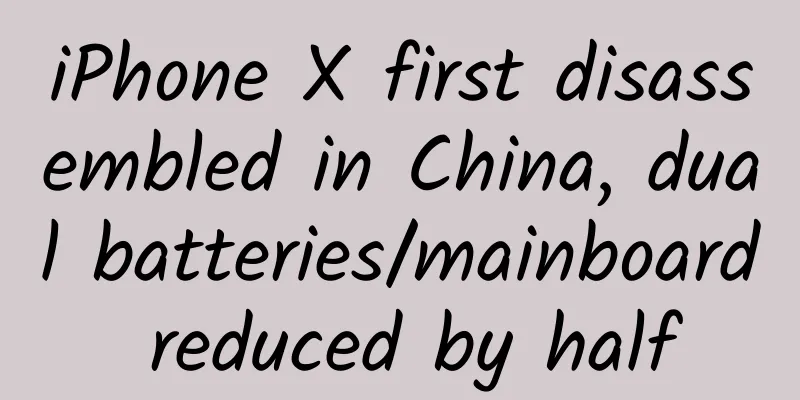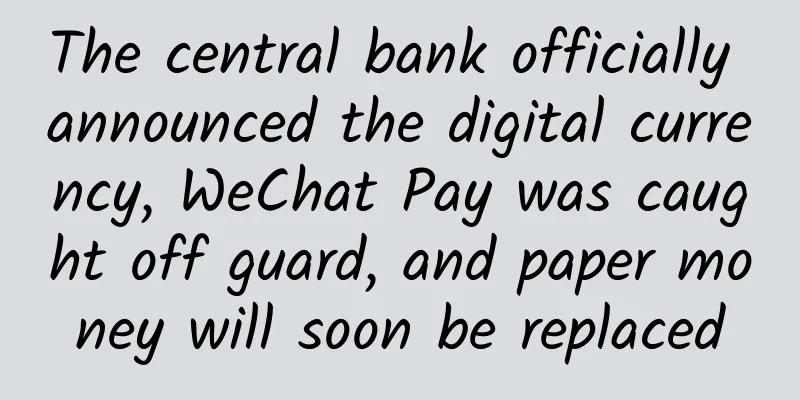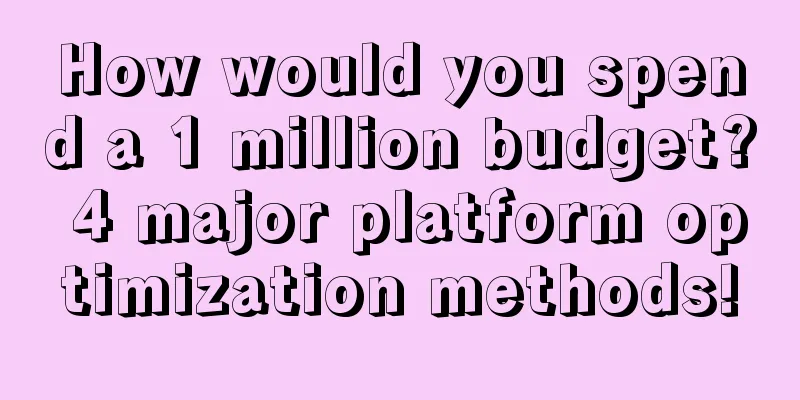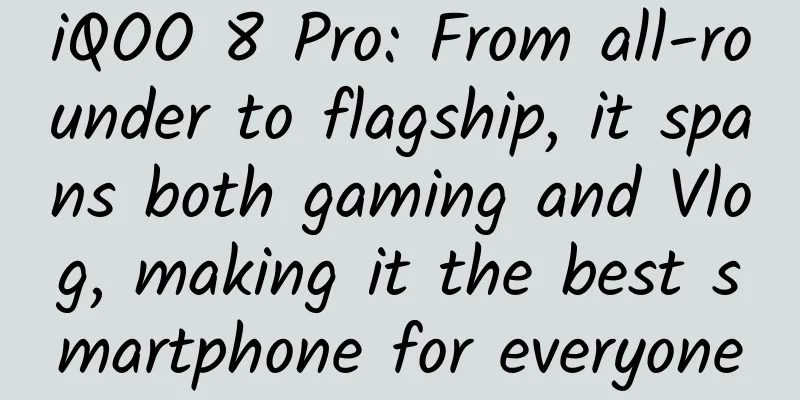Poor sales of Samsung and Apple drag down Ericsson, making domestic mobile phones lambs to be slaughtered?
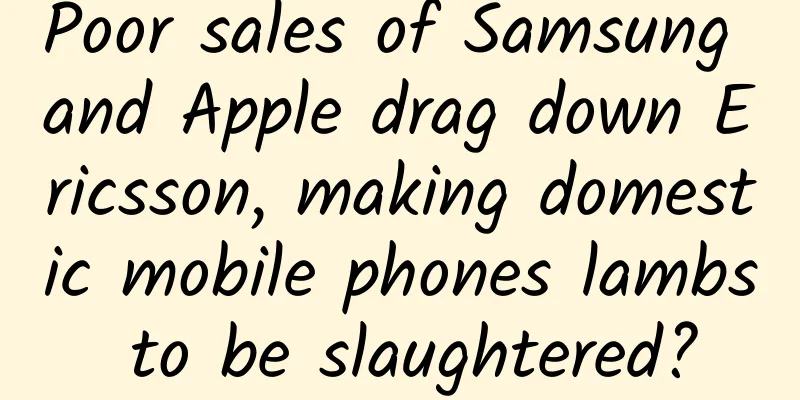
|
“-10%”. Ericsson's performance in 2016 can only be described as disastrous. Recently, Ericsson released its latest financial report showing that the company's overall sales performance in 2016 was 22.26 billion Swedish kronor (2.528 billion US dollars), a sharp drop of 10% compared with 24.696 billion Swedish kronor in 2015. The main reason for the decline in performance was the significant drop in "patent licensing revenue" in 2016. Data released by IDC shows that global smartphone sales reached 1.47 billion units in 2016, reaching a record high. So why did the patent licensing revenue of patent giant Ericsson not only fail to grow in tandem, but instead decline and drag down Ericsson's overall performance? Ericsson's patent revenue: Samsung and Apple are its biggest "contributors" Data shows that Ericsson's patent licensing revenue reached a record high of 1.44 billion Swedish kronor in 2015, a significant increase of 45% over 2014. The reason for the sharp increase in Ericsson's patent licensing revenue in 2015 was that Ericsson and Apple reached a new patent licensing cooperation that year. However, the "love-hate" relationship between Ericsson and Apple is similar to the current relationship between Apple and Qualcomm. In January 2015, Apple felt that Ericsson's licensing fees for 2G, 3G, 4G/LTE-related patent technologies were too high. After the previous agreement with Ericsson expired, Apple refused to sign a new agreement and sued Ericsson in the U.S. District Court for the Northern District of California, hoping that the court would confirm that it did not infringe on Ericsson and accused "Ericsson of trying to expand the role of its patents and maximize profits from Apple's self-developed cutting-edge products." Facing Apple's lawsuit, Ericsson fought back fiercely. Ericsson immediately sued Apple in the U.S. District Court for the Eastern District of Texas, asking the court to confirm that the standard essential patent license agreement it provided to Apple did not violate "fair, reasonable and non-discriminatory licensing obligations." In February 2015, Ericsson took action again, suing Apple in the US Federal Trade Commission and the US District Court in Texas, alleging that Apple's iPhone and iPad infringed 41 of its patents. In May 2015, Ericsson took action for the third time, filing patent infringement lawsuits against Apple in Germany, the United Kingdom and the Netherlands. Half a year later, on December 21, 2015, Apple and Ericsson reached a comprehensive settlement and signed a new seven-year global patent licensing agreement, and terminated or withdrew the patent lawsuits initiated by each party against the other. In 2013, Samsung and Ericsson signed a new patent licensing agreement, which also led to a significant increase in Ericsson's patent licensing revenue that year. It can be said that Ericsson’s patent licensing revenue is completely dependent on the global smartphone market. Samsung and Apple's sales both declined in 2016, dragging down Ericsson's performance Data released by IDC shows that the total global smartphone sales in 2016 were 1.47 billion units, among which the top five mobile phone manufacturers in terms of total sales were Samsung, Apple, Huawei, OPPO and vivo. However, it is worth noting that although Samsung and Apple still rank first and second in global smartphone sales, their sales have declined to varying degrees. Samsung's sales have fallen by 3% compared to 2015, while Apple's sales have fallen by 7%. As for Ericsson, its patent licensing revenue in 2016 fell 7% compared with 2015, and its overall performance fell by about 10% compared with 2015. Faced with the declining sales of Samsung and Apple in the global smartphone market, Ericsson will obviously not "sit idly by." In the global smartphone sales list, domestically produced mobile phones, which have an increasingly higher cumulative share, may have become the "fat meat" that Ericsson is eyeing. Among them, Huawei has taken the lead in reaching a patent cross-licensing agreement with Ericsson. On January 14, 2016, Ericsson and Huawei renewed their global patent cross-licensing agreement. As part of the renewal agreement, Huawei will pay Ericsson licensing fees based on actual sales starting in 2016. Danger! Not only Xiaomi, but also domestic mobile phones such as OPPO and vivo may have been targeted by Ericsson In 2014, Xiaomi could be described as a “rising star”. With a total of 61.12 million mobile phone shipments throughout the year, Xiaomi has taken the top spot in China's smartphone market. However, this quickly led Xiaomi to be involved in Ericsson's "patent robbery" and became one of Ericsson's first "test-the-knife" targets. On December 11, 2014, Xiaomi was sued by Ericsson in the Delhi High Court in India for allegedly infringing eight patents owned by Ericsson, including ARM, EDGE, 3G and other related technologies. To date, the dispute between the two parties has not been fully understood. It is worth noting that among the top five mobile phone manufacturers in the world in terms of total sales volume, Samsung, Apple, Huawei, OPPO and vivo, Samsung, Apple and Huawei have all signed patent licensing agreements with Ericsson. OPPO, vivo, Xiaomi, Meizu and many other domestic mobile phone brands should not have signed the agreement. This should also be the key reason why Ericsson executives visited the State Intellectual Property Office before the New Year. On December 14, 2016, Zhang Maoyu, Deputy Commissioner of the State Intellectual Property Office, met with a delegation led by Martyrs Hermann, Global Vice President and Head of Strategy and Patent Portfolio Management of Swedish company Ericsson in Beijing. Marthils Hermann said that Ericsson attaches great importance to the Chinese market and has invested a lot of R&D resources in China. He hopes that through this exchange, he can further understand China's intellectual property work and better carry out related business in China. At that time, the topic shared by Ericsson's vice president was the relevant situation in "Ericsson standards and patents", and judging from the purpose of his visit, it was obviously to learn how to do a good job in Ericsson's "patent licensing cooperation" in China. Today, Ericsson's overall performance and patent licensing performance have declined due to the rise of domestic mobile phones. So, in addition to Xiaomi, many domestic mobile phone brands including OPPO, vivo, Meizu, etc. should have been targeted by Ericsson. The only thing that cannot be confirmed is whether Ericsson will choose to "sue" to resolve the issue or accelerate negotiations to resolve it. If it sue, in which markets will it sue the target mobile phone brands besides the Chinese market? These issues obviously need to attract the attention of many domestic mobile phone manufacturers including OPPO, vivo, Xiaomi, Meizu, etc. As a winner of Toutiao's Qingyun Plan and Baijiahao's Bai+ Plan, the 2019 Baidu Digital Author of the Year, the Baijiahao's Most Popular Author in the Technology Field, the 2019 Sogou Technology and Culture Author, and the 2021 Baijiahao Quarterly Influential Creator, he has won many awards, including the 2013 Sohu Best Industry Media Person, the 2015 China New Media Entrepreneurship Competition Beijing Third Place, the 2015 Guangmang Experience Award, the 2015 China New Media Entrepreneurship Competition Finals Third Place, and the 2018 Baidu Dynamic Annual Powerful Celebrity. |
Recommend
How to correctly intercept competitors’ high-quality traffic? Avoid blindly placing competitor keywords
In the marketing process, there is a type of keyw...
If you don’t understand, just ask, why are there silkworm pupae hanging on ginkgo trees?
Before reading the article, a reminder The pictur...
Counterpoint: Global foundry output value in Q4 2023 increased by about 10% compared with the previous quarter
According to the latest report from Counterpoint ...
"91 Ten Articles" - A daily must-read briefing for the new energy vehicle industry (210125)
1. China National Energy Group, China Reform Hold...
Are you afraid of the "devil's gnawing" that is more deadly than toothache and the "hurricane" on your toes?
——Gout Science Popularization: Diet Author: Pan J...
Building a solar system on your living room ceiling? The secret of this ancient planetarium is in the attic
The picture shows the solar system pendulum model...
2021 Investment and Financial Management Fund Stock Academy Course Full Set of Convertible Bonds Hong Kong Stock IPOs Beginner to Mastery Tutorial
2021 Investment and Financial Management Fund Sto...
What will the VR 2.0 era be like? Five major changes may be coming
2016 is already halfway through, and the Oculus R...
How to make Tik Tok? 6 operation and promotion techniques of Tik Tok!
There are two main points to focus on when doing ...
5,000 yuan is not important, you may lose Alipay and WeChat Pay
[[143843]] Your favorite Wu Meiniang has had her ...
Do you have dry eyes and feel tired all the time? Do you know what nutrients are needed to protect your eyes?
No. 211 Don't be a muddy world In today's...
Cooling spray has a bad temper and may be flammable and explosive!
Even though the beginning of autumn has passed, t...
BYD promotes traditional Chinese sports into the Olympics, helping "dragon boat racing into the Olympics"
On August 11, BYD and the Chinese Canoe Associati...
How to do the annual review of Douyin Blue V? How much does the annual review of Douyin Blue V cost?
1. What is the use of Douyin enterprise certifica...
User growth and basic process!
However, today's article wants to do one thin...

